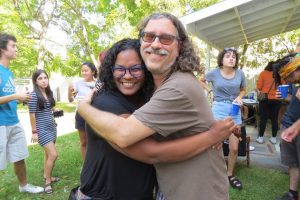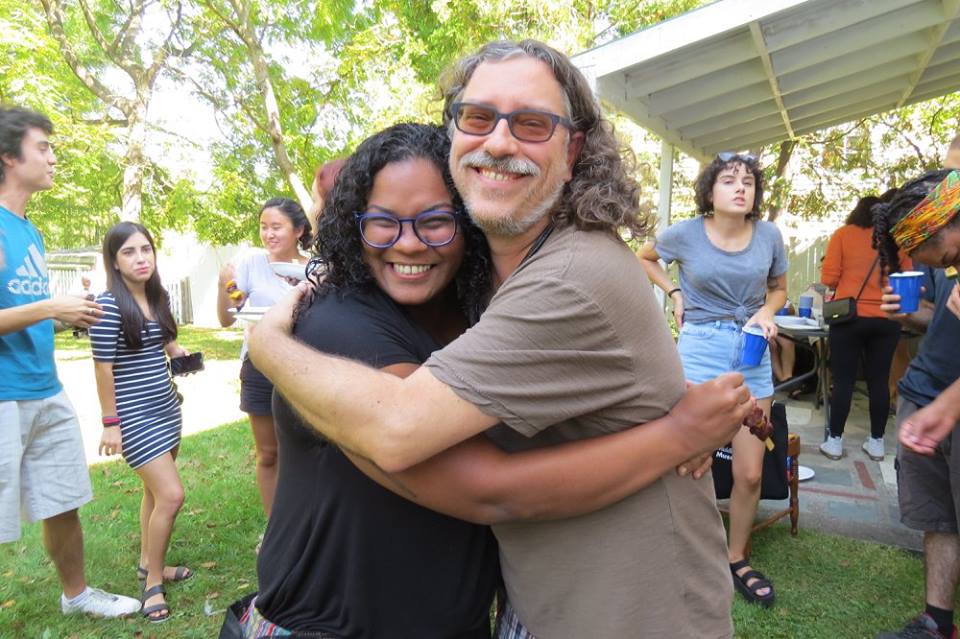
In each issue of Keywords, we profile a faculty member who makes innovative use of the library and/or academic technology. This issue features Dr. Marissel Hernández-Romero, Visiting Assistant Professor of Spanish and Portuguese, 2017-2020. The questions are posed by Literatures & Cultures Librarian Katrina Spencer.
Name: Marissel Hernández-Romero
Hometown: Trujillo Alto, Puerto Rico
Where are you coming from and how long have you been here?
I’m from Puerto Rico, born and raised on the island. This is my first semester at Middlebury. I’ve been here for 4 months now. I came directly from Puerto Rico where I was teaching at the University of Puerto Rico.
Having experienced two hurricanes in recent months and challenging recovery efforts, Puerto Rico and Puerto Ricans have suffered significant damage. What would you like people living in the continental U.S. to know? How can we be helpful?
Puerto Rico is facing the biggest disaster it has ever experienced. It has been almost 2 months since Hurricane Maria hit the island and conditions have not improved. We are hostage to two of the most mediocre federal and state governments ever. Their lack of action has provoked a humanitarian crisis: shortages of food, limited potable water, no electricity on more than half of the island, hundreds of people reported missing and over 900 dead. The level of devastation is heartbreaking. A friend and I wrote an op-ed explaining Puerto Rico’s political status that includes a list of grassroots organizations working on the recovery of the island.
Tell me more about your role at Middlebury. What courses are you teaching this semester?
This semester I’m teaching an accelerated beginning Portuguese course and also intermediate/advanced Portuguese. I like this last course because in addition to revising grammar, we discuss short stories on themes such as racism, privilege, police brutality and social change. I’m also excited about the course I’m teaching next winter session on the sociocultural aspects of salsa music.
How long is your Middlebury appointment and what do you hope to accomplish in that time period?
I’m here for at least 3 years. I hope I can advance the book I’m writing, which examines the figure of the marginal as represented and defined by the contemporary Brazilian cultural movement Literatura Marginal. By focusing on theses characters, my research looks at some of the problems that affect the lives of people on the periphery in Latin America and the Caribbean who have been marginalized. In my research, I propose a reinterpretation of the 19th-early 20th century Latin American social banditry trope by establishing parallels between marginality and social banditry. My study draws from the insights of Jossiana Arroyo’s travestismo cultural (cultural transvestism), Juan Dabove’s Latin American bandits, Sylvia Molloy’s pose and Arnold Van Gennep’s rites of passages.
How do you expect teaching here will be different from teaching in Puerto Rico?
Well this is quite different. Before, I was at a public institution — the University of Puerto Rico — with limited resources. Just before I moved here there was a student strike that lasted 3 months. Here, I am amazed with the resources available. Middlebury is a very stimulating place — it makes researching and writing possible — but I have to admit that working at a predominately white institution can be challenging. But I’ve been lucky; though it has been a rough semester, I have amazing students and my colleagues in the Department of Spanish and Portuguese are very supportive, understanding and empathetic.
What is your area of research?
I am interested in contemporary literature and cultural production in Latin America and the Spanish Caribbean, mainly Brazil and Puerto Rico. I always try to have an interdisciplinary approach, draw from literature, politics, music, sociology, history. Recently I am exploring Brazilian and Cuban science fiction, especially Afrofuturism in these two countries. Currently, I am working on a manuscript titled Hostage to the Past or the Unbearable Present for Black Men in the Movie Branco sai, preto fica. By focusing on the characters’ bodies, I develop and examine questions about the intersection of race and masculinity, and propose that this movie breaks with the discourse that has shaped a particular vision of black masculinity constructed on physical attributes by presenting black men with shattered bodies and psychological well-being.
How do you use the library?
When I first arrived to Middlebury over the summer, I used the library mostly for its quiet space. I needed to prepare the syllabi for my fall classes and it allowed me to do that with few distractions. Also, when new faculty are learning teaching platforms, our academic technology orientations are held there. Most recently, I have used interlibrary loan to order books we do not own to prepare for my J-term course, Spanish 352: Salsa Music and the Assembly of a Collective Self. I also use the Help Desk when I have technology problems!
What else should we know about you and your work?
Recently, La Pupila, an independent Puerto Rican journal, invited me to collaborate with an op-ed on issues of the Puerto Rican diaspora. The name of my section is “Desde afuera.” I also channel my scholarly work toward projects that promote social justice. I joined a group of volunteer professors to deliver 45 hours of online classes to displaced Puerto Rican students whose graduation date was jeopardized by the hurricane.
